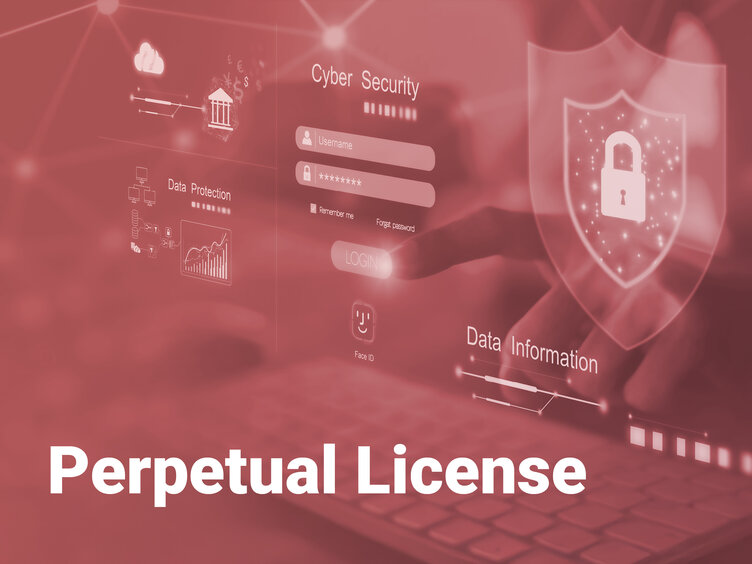Perpetual License - for software protection and license management systems
A perpetual license is a licensing model in which users acquire the right to use software for an unlimited period of time by making a one-off payment. In contrast to subscription models, there are no recurring fees, provided no optional maintenance contracts are added.
Significance in the context of software protection
Perpetual licenses play a central role in ensuring investment security and control over software. They enable companies to
- Long-term planning without dependence on provider updates or price adjustments.
- Offline use without cloud commitment.
- Cost transparency through fixed expenditure.
The aim is to reduce software piracy by protecting legal users through clear ownership rights.
Important elements
- One-off upfront payment: Full assumption of costs upon purchase.
- Useful life: Unlimited as long as the software is technically functional.
- Versioning: Access to the purchased version, updates only with optional maintenance contracts.
- License medium: Hardware dongles (e.g. USB tokens such as the CRYPTO-BOX) or software-based keys.
Influencing factors
- Cloud migration: Many manufacturers prioritize subscriptions (e.g. Adobe, Microsoft).
- Vendor strategies: Microsoft will discontinue perpetual licenses for Dynamics 365 Business Central from 2025.
- Cost-benefit calculation: Higher initial investment vs. long-term savings.
- Security requirements: Perpetual Licenses require robust copy protection (encryption, dongle binding).
Advantages for users and companies
- Cost control: No unexpected fee increases.
- Sense of ownership: Full control over software versions.
- Reduced dependency: use possible even in the event of manufacturer insolvency.
- Data protection: Local installation minimizes cloud risks.
Current example (2025)
Microsoft Dynamics 365 Business Central will discontinue perpetual licenses from April 2025 and rely entirely on cloud subscriptions. Existing customers may continue to use their on-premise licenses, but will no longer receive new purchase licenses. This shows the industry trend towards the cloud, but leaves perpetual licenses still relevant for niches (e.g. industrial control systems).
Conclusion
Perpetual licenses will remain a cornerstone in 2025 for companies that require long-term planning security and high data sovereignty - especially in regulated industries such as medical technology or energy. Modern license management systems such as CodeMeter or Thales Sentinel combine perpetual licenses with flexible protection mechanisms to prevent piracy and ensure compliance.
Sources
Author:
Steffen Kätsch
Senior Support Engineer / Consultant License Management
Education: FH Jena
Expertise: License Management Software Licensing Software Protection IT Compliance Digital Rights Management
